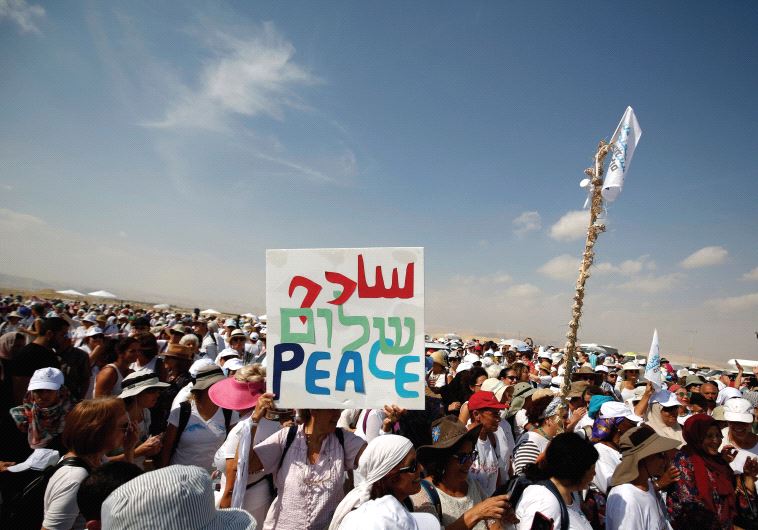Encountering Peace: Speaking peace out loud and all over
Since the birth of the State of Israel and the birth of the Palestinian refugee problem, we (both) have been on the path of choosing death, not life.
 Activists, including Israelis and Palestinians, take part in a demonstration in support of peace near Jericho
Activists, including Israelis and Palestinians, take part in a demonstration in support of peace near Jericho